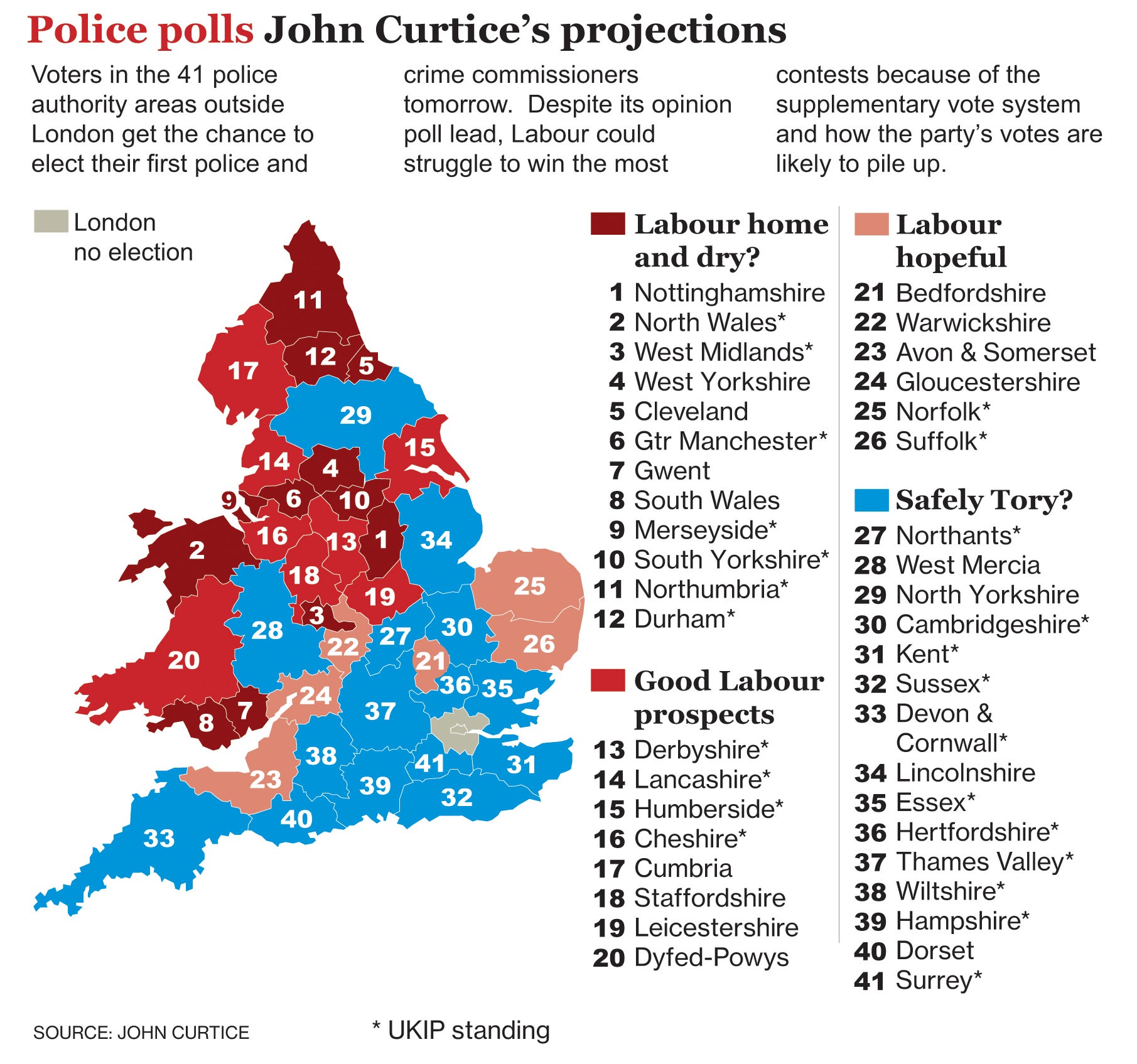Size discrepancies of police force areas put Labour at a disadvantage
To emerge as the winner, Labour will need to outperform its current poll position


Labour could match its current 10-point lead in the opinion polls – yet still emerge as the apparent loser in the first police and crime commissioner elections being held tomorrow throughout England and Wales.
Click HERE to view graphic
At the last general election, Ed Miliband's party was ahead in 12 of the 41 police force areas. The party certainly hopes to win all of these. Meanwhile, there are another eight areas – our "good Labour prospects" (see graphic) – that the party would also win if the 7 per cent swing implied by the national polls was replicated locally. That, however, would still leave Labour with just 20 police commissioners, one short of the 21 that would be in Tory hands.
Labour is disadvantaged because police force areas vary tremendously in size. Metropolitan areas such as the West Midlands and Greater Manchester, where the party is strongest, contain up to four times as many voters as some of the smaller, more rural areas, such as Gloucestershire and Suffolk.
To emerge as the undisputed winner, Labour will need to outperform its current poll position and capture some of our "Labour hopefuls". However, some of these, such as Gloucestershire, Norfolk and Suffolk, pose a severe challenge – Labour needs as much as a 12 per cent swing and to emerge from having come third locally in 2010. Much may rest on Labour's ability to capture the somewhat easier pickings of Bedfordshire and Warwickshire.
Yet how far these elections will reflect the national picture is uncertain. Although not as plentiful as the Conservatives hoped, 54 Independents have put up the £5,000 deposit needed to stand. According to an Ipsos-Mori survey, more than half of voters are minded to choose a non-party candidate, though this may be voters expressing an anti-politics mood to a pollster rather than a firm intention for the ballot box.
Meanwhile, both the Liberal Democrats and Ukip are only fighting 24 of the 41 areas, while in Wales Plaid Cymru is sitting out the election entirely. Labour will hope to profit from Plaid's absence, while the Tories will fear losing out where Ukip is standing – even though under the supplementary vote system (where voters can make a first and a second choice) defectors to Ukip could still give the Tories their potentially crucial second vote.
But with one poll suggesting that as few as 15 per cent are certain to vote, nobody can be sure who will win or lose from the anticipated low turnout. Indeed, the biggest loser tomorrow could simply be those who hoped these elections would enhance Britain's democracy.
John Curtice is Professor of Politics, Strathclyde University
Join our commenting forum
Join thought-provoking conversations, follow other Independent readers and see their replies
Comments
Bookmark popover
Removed from bookmarks